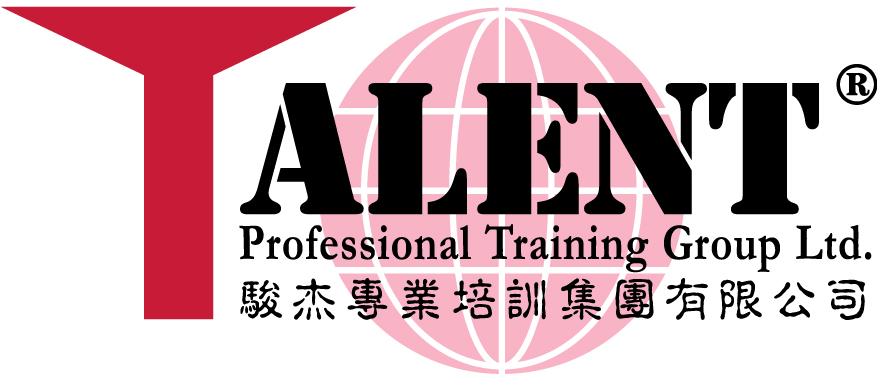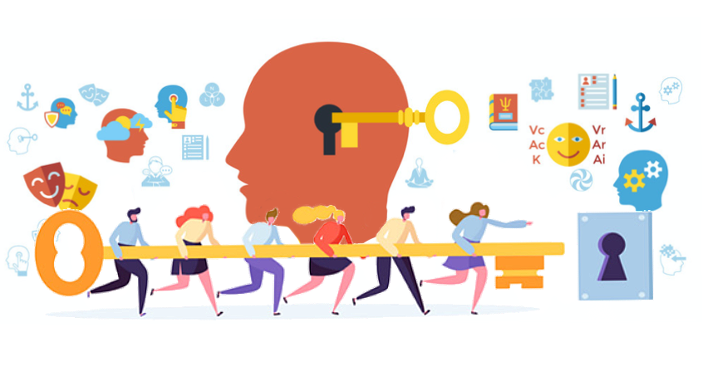Neuro-Linguistic Programming (NLP)
- Exploring and maximizing inner potential to elevate capacity and flexibility within self and team
Under the dynamic environment, to achieve higher organizational goals and bring the organizations to a new height of success, there is paramount importance for the staff to continuously improve their working effectiveness with proper communication and interpersonal skills for coordinating with different departments in different scenarios, while constantly being a positive influence in the workplace to uplift the team atmosphere. To enhance productivity and effectiveness, organizations also need people resources with higher personal quality and resourcefulness who possess good insights of own and others’ emotional states, work style and characteristics.
In this course, an accelerated learning approach and various practical exercises will be adopted to facilitate participants’ discovery of their existing internal resources. They will also learn how to improve the ideal state and performance at any time. Upon course completion, participants will acquire a variety of widely recognized cognition and communication skills, which will help to exert their influence and improve the success rate of their work.
Objectives of Neuro-Linguistic Programming (NLP):
- Comprehend the basic concepts, ideas, and knowledge in NLP
- Enhance awareness of their own and others’ communication patterns, how they listen and present
- Understand the common barriers of communication and effective ways to eliminate problems related
- Learn methods to assess one’s own and others’ values, belief systems, message reception styles and communication patterns
- Develop proper communication strategies to people of different communication styles and patterns
- Tap into others’ internal representation systems
- Acquire practical verbal, non-verbal communication, and interaction techniques to enhance persuasion, negotiation, motivation to others, conflict prevention or resolution
- Take a positive attitude towards current work, people and challenges and have a mindset to view things in more different perspectives
Sample Outline of Neuro-Linguistic Programming (NLP):
-
Understanding Management and Supervision
- Introduce representation system – how people in a team perceive and process external information through five senses differently
- Identify preferred representation system
- Understand physiological, psychological and linguistic characteristics of each style:
- Visual,
- Auditory,
- Kinesthetic
- Auditory Digital
- Enhance connection through sensitizing own five sense
- Adopt appropriate ways of communicating with people of different representation systems
- Practice the use of relevant predicates to match each style to build better connections
-
Increase Interpersonal Flexibility - Mindset
- Adopt the mindset that connecting is all about others and not ourselves.
- Law of Balance: Perceptual Positions
- Learn to view things from three different positions
- First Position
- Second Position
- Third Position
- Get into the experience behind other’s words through the understanding of deep structure and surface structure of language
- Explore the implication of semantic and how we create, process and exchange messages with each other
-
Increase Interpersonal Flexibility – Skillset
- Learn about the ways we express and receive messages with the concept of NLP:
- Generalization
- Deletion
- Distortion
- Differentiate presupposition and mind-read when communicating with others to better understand the message behind and facilitate communications with others
- Introduce precision questioning to clarify messages and elicit useful information
- Adopt advanced level of skills to initiate positive response and to promote the acceptance of messages
- Learn about the ways we express and receive messages with the concept of NLP:
-
Create Resourcefulness in Workplace
-
Explore concept of “Self-Leadership”: Self-Leadership is knowing
- who you are,
- what you can do and
- where you are going
- Learn how one maps his goals, objectives, outcomes and purpose which creates one’s sense of motivation
- Introduce the characteristics of well-formed outcome and how it helps increase the probability of achieving the outcome
- State personal objectives in specific enough terms to check off those that can be reached at the end
- The 10 Key NLP Presuppositions – the core beliefs of successful people’s thoughts
-
-
Integrate Skills into Work and Life
- Understand state as a mental and emotional state which is a dynamic state of experience
- Introduce the four keys to anchoring
- Adopt skill to “anchor” resourceful experiences and states which can be retrieved anytime and anywhere
Contact Talent Professional today for your best suited Neuro-Linguistic Programming (NLP) training solution for your staff to enhance personal and team flexibility and capacity for performance breakthrough!
Remarks: Program objectives and outlines are for reference only; programs would be tailor-made with clients' specific requirements.



